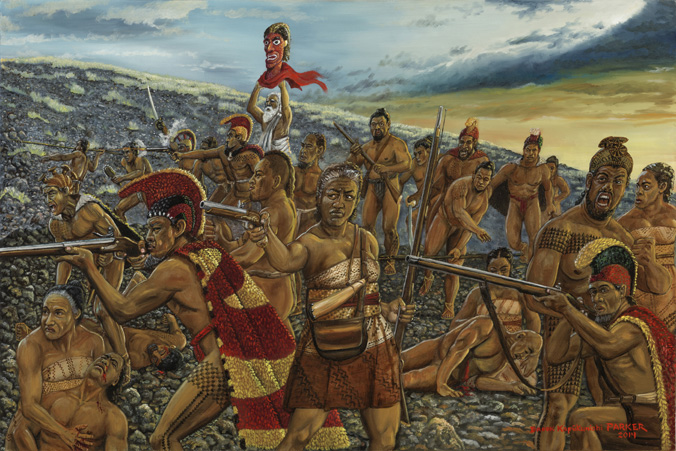
The University of Hawaiʻi at Mānoa Hawaiʻinuiākea School of Hawaiian Knowledge is presenting a performance tribute titled Ka Hulina Au: The Changing Time on November 10, from 6 to 8:30 p.m. at UH Mānoa’s Andrews Amphitheater.
The tribute and fundraiser for Native Hawaiian student scholarships will feature mele (music) and hula by many of Hawaiʻi‘s most well-known kumu hula and their hālau including Vicky and Jeff Takamine, Māpuana de Silva, Manu Boyd, Leilani Basham, Tracie and Keawe Lopes and Snowbird Bento. Oratory will be performed by Laʻakapu Lenchanko, Haʻalilio Solomon and Frank Damas.
There will also be musical performances and poetry by Pacific Tongues, Kealiʻi Reichel, the Osorio ʻOhana and Kīhei Nahale-a. Actors from the UH Mānoa original play ʻAuʻa ʻIa: Holding On, written and directed by Tammy Hailiʻōpua Baker, will perform a portion of the play.
“We’re seeing this, really, as another opportunity for kanaka to come together, for the people of Hawaiʻi to come together, and to see and enjoy the artistry and expertise of our people in these performing arts and to remember a really critical time,” said UH Mānoa Hawaiʻinuiākea Dean Jon Osorio.
That critical time is the 200th anniversary of one of the last great battles among the chiefs at Lekeleke in Kona on Hawaiʻi Island sparked by a decision a month prior by the heirs of Kamehameha the Great to end ʻaikapu. Also referred to as kapu, the social and religious practice, which was more than a thousand years old at the time, ritually separated all men and women, aliʻi and makaʻāinana, from eating in each other’s presence. It also included strict prohibitions of certain foods to men and certain foods to women. Many of those who defended ʻaikapu at Lekeleke, including the chiefs that led the losing effort, died in battle.
“The purpose of this concert is to honor those chiefs who both did this, made this decision, to change society, and those who resisted that change, who honored the tradition,” said Osorio. “Many of us believe we are going through a similar kind of transformation in Hawaiʻi now, not just for Native Hawaiians, but for all of us who live here. Difficult times, difficult decisions and choices. At some point, we feel we need to understand that we have gone through those periods before and survived.”
The event is a fundraiser for the Hawaiʻinuiākea emergency scholarship fund for Native Hawaiian students enrolled at UH Mānoa.
“It’s something that can be delivered relatively quickly and it’s proven to be a real blessing over the years for students who needed the extra assistance to keep them in school and get them to graduation,” said Osorio.
General admission for the performance tribute is $29 and student admission is $15. To purchase tickets, go to the Hawaiʻinuiākea website or Facebook, email hshk@hawaii.edu or call (808) 956-0980.
Food trucks will be available when the doors open at 5 p.m. including Just Ice, Sistah Truck, Holoholo Grill, Da Spot, Hot Tacos and Rocket Coffee. The event is alcohol, tobacco and drug free, and no outside food, drinks or coolers will be allowed.
The ending of ʻaikapu and the battle of Lekeleke
Ka Hulina Au: The Changing Time
In early May, 1819, the great warrior Mōʻī of the Aupuni of Hawaiʻi, Kamehameha Paiea passed away. He left an heir to rule the Aupuni, his son Liholiho and a nephew, Kekuaokalani who had custody of his powerful personal war god Kūkaʻilimoku. In addition to these two high ranking Aliʻi Nui were two equally powerful female chiefs, Kaʻahumanu, who had also been Kamehameha’s Kūhina Nui (chief counsellor) and Keōpūolani, the mother of Liholiho and the rest of his most sacred children, and a chief of the highest rank in her own right.
Barely six months after the Conqueror’s death, Liholiho and his younger siblings would be at the behest of Keōpūolani and Kaʻahumanu, intentionally violate and end a social and religious practice known as ʻaikapu, that was over a thousand years old, which ritually separated all men and women, aliʻi and makaʻāinana alike, from eating in each otherʻs presence and included strict prohibitions of certain foods to men and certain foods to women. This decision set the ruling family against a number of other powerful Aliʻi Nui including Kekuaokalani, the tender of the war god and within a month, their forces fought one of the last great battles among the chiefs at Lekeleke in Kona on Hawaiʻi island.
Liholiho and Kaʻahumanu prevailed. Kekuaokalani and his wahine Manono were slain on the battlefield, and the ʻaikapu gave way to ʻainoa, free or unsanctified eating with enormous implications for the social, cultural and political fabric that had provided stable and effective leadership for more than a thousand years.
Ka Hulina Au will commemorate this difficult and fateful time with mele and hula, oratory and dramatic performances, poetry and music, celebrating the courage and dedication of these Aliʻi Nui and call us to ponder the complexities of leadership in enigmatic times.

